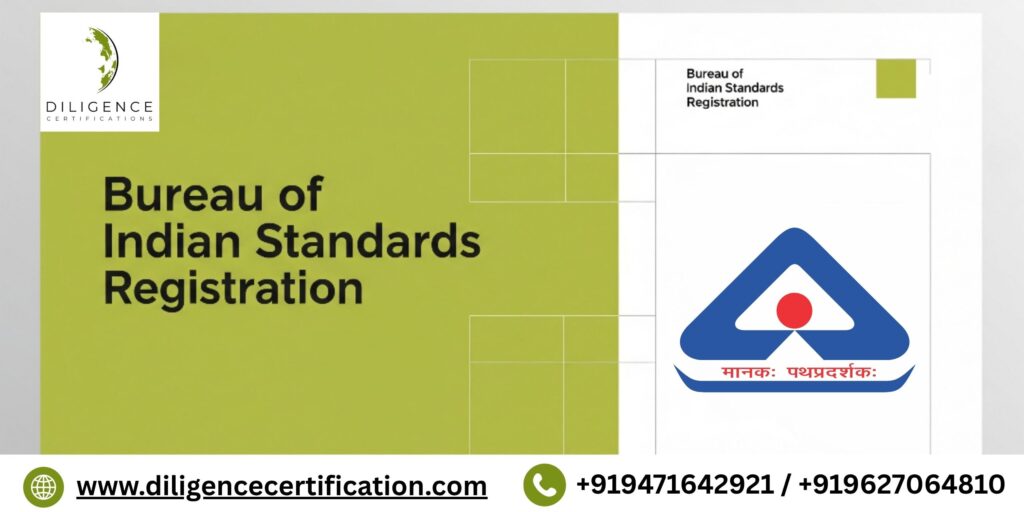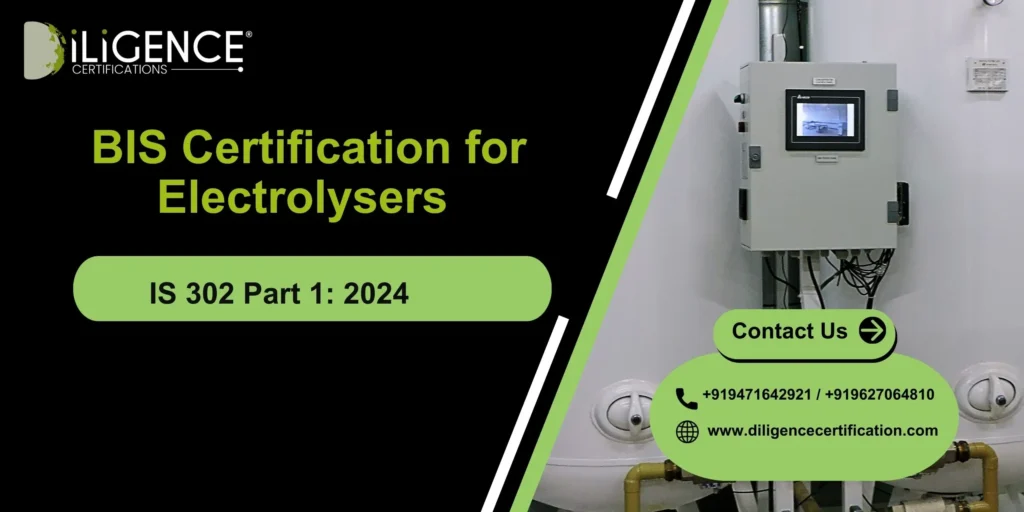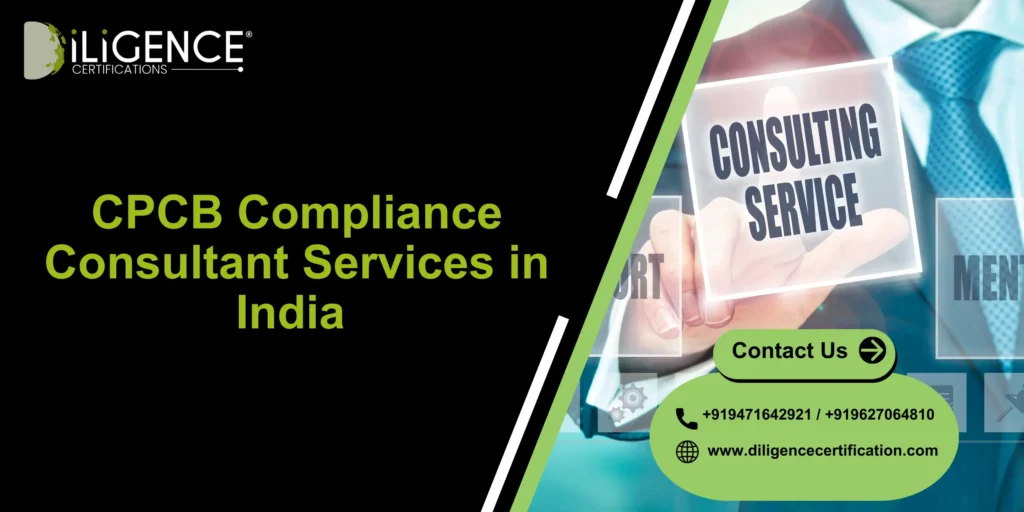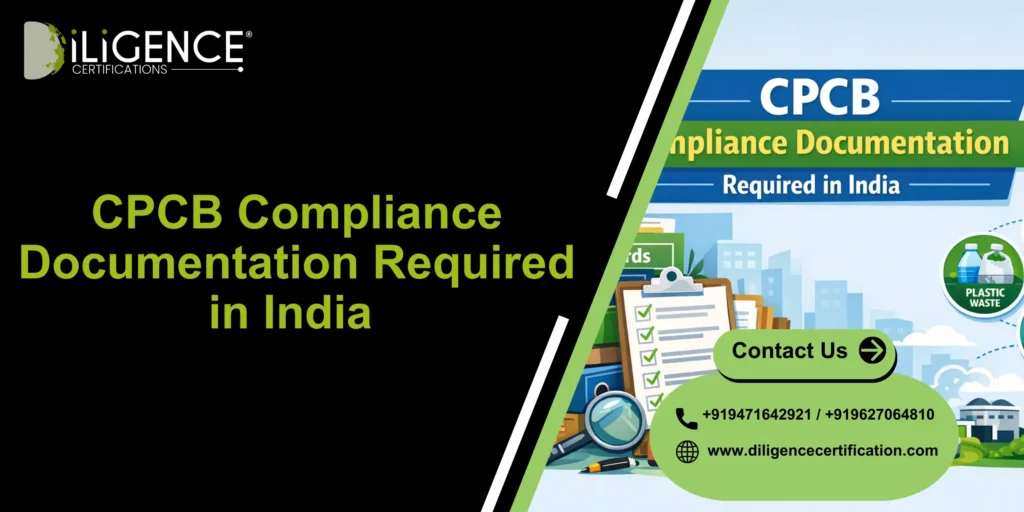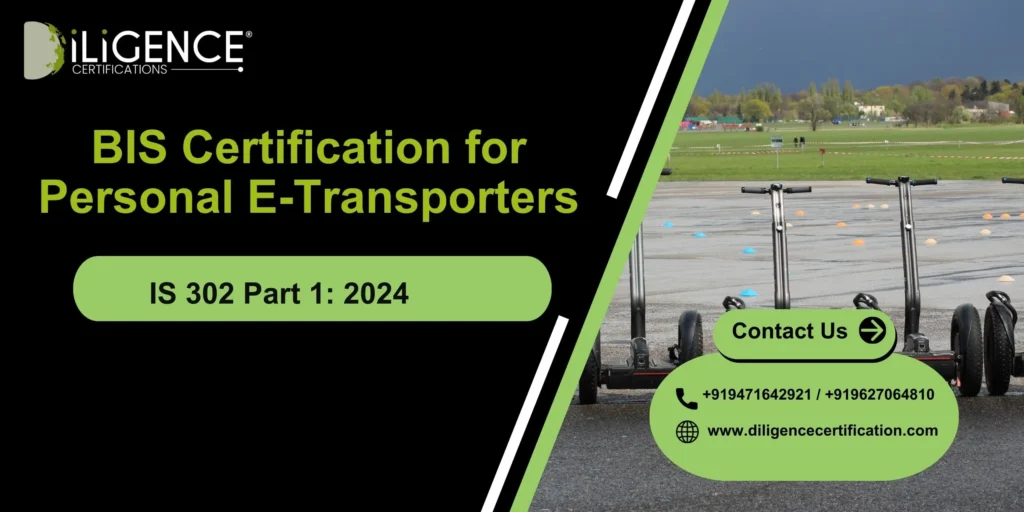- Bureau Indian Standard Registration is compulsory for certain products to provide information regarding India’s safety, quality and performance parameters.
- A valid BIS license, a BIS certificate, and meeting Indian Standard Specifications are important for Indian and overseas manufacturers alike.
- Ensuring the BIS Renewal Process is completed on-time, avoids fine and is essential for market access in India.
Introduction
In mid-2024, a French company exporting lithium battery packs for e-scooters, ran into a customs block at Nhava Sheva Port. Despite CE marking in Europe, their product did not meet Bureau of Indian Standard specifications, resulting in returned goods and heavy financial losses. Their Indian partner later described it as a “nightmare we could’ve avoided with timely BIS registration.”
This incident mirrors dozens of similar issues foreign brands face each quarter.
What is the Bureau of Indian Standards?

The Bureau of Indian Standards (BIS) is a statutory body in relation to the Ministry of Consumer Affairs, India’s national standards body.
Established pursuant to the BIS Certification Act, 2016 BIS governs the standards of product quality, public health and safety in conjunction with forming Indian Standards have your product and business registered with the Bureau of Indian Standards and compliance monitored through certification schemes.
Key Roles of BIS:
- Granting BIS licenses and BIS certificate
- Developing and publishing Indian Standard Specifications
- Approving laboratories for product testing
- Conducting surveillance, market audits, and enforcement
What is Bureau Indian Standard Registration?
Bureau of Indian Standards registration is the government-mandated process through which specific products are assessed for conformity to Indian Standard Specifications.
The outcome of this process is either:
- A BIS Certificate under the ISI Mark Scheme (for Indian manufacturers)
- A BIS Certificate under the Compulsory Registration Scheme (CRS) (predominantly applicable for electronics) (and for foreign brands)
No manufacturer or intermediary agent or importer can legally sell products subject to the BIS Certification, in India without registering first.
Who Actually Needs BIS Registration?
Mandatory Product Categories
As of 2025, the mandatory list includes:
- Electrical products (cables, switches, plugs)
- Steel & iron products
- Pressure cookers
- Toys
- Footwear
- Cement
- Domestic appliances
- LED lights
If your item is in these categories, there is no shortcut. No import, no sale, no movement without BIS Certification.
Voluntary Registration
If your product does not fall under mandatory BIS Certification, you can still register voluntarily. It gives you a big marketing edge, because Indian buyers associate BIS (Bureau of Indian Standards) with quality, even if technically not needed. I have personally seen many MSME clients get large government tenders purely because they showed a voluntary BIS certification.
Understanding BIS License vs BIS Certification
| Feature | BIS License | BIS Certificate |
| Applicable Scheme | ISI Mark Scheme | Compulsory Registration Scheme (CRS) |
| Target Users | Indian Manufacturers | Importers, Foreign Brands, Indian Sellers |
| Key Process | Factory Inspection + Product Testing | BIS Lab Testing + Self Declaration |
| Example Products | Cement, Pressure Cookers, Steel Rods | Mobile Phones, Power Banks, LED TVs |
| BIS Mark Required | ISI Mark | CRS Mark |
A BIS license requires deeper scrutiny and infrastructure evaluation, whereas a BIS certification is product-centric and testing-based.
What are Bureau of Indian Standard Specifications?
Bureau of Indian Standard specifications refer to documented norms that define the safety, performance, and reliability of a product. Every product under BIS Certification purview must conform to its assigned IS code.

Sample Indian Standard Specifications:
- IS 302-2-26 – Electric Iron Safety
- IS 13252 (Part 1):2010 – IT Equipment Safety
- IS 16046 (Part 2):2018 – Lithium Battery Packs
- IS 616:2017 – Audio & Video Electronics
Manufacturers must check their product’s applicable IS code before initiating registration.
Search official standards here: BIS Standards Portal
Surveillance and Market Monitoring
BIS Certification regularly conducts market surveillance to check whether BIS Certification products maintain conformity. This includes:
- Sample collection from the market
- Random product testing
- Surprise factory audits
Deviation Management
Manufacturers must immediately notify BIS Certification about any changes in:
- Product design or construction
- Manufacturing process
- Factory location
- Brand ownership
Unauthorized deviations can result in cancellation of BIS certification.
Product Marking and Labeling
Every BIS certification product must include:
- BIS Standard Mark
- License/Registration Number (e.g., R-41111111)
- Applicable IS Code
- Manufacturer name and batch number
Incorrect marking is treated as misbranding and can attract penalties.
BIS Registration Process in India – Step-by-Step
1. Identify Applicable Certification Scheme
- ISI Scheme for Indian manufacturers
- CRS Scheme for electronics & IT imports
- Hallmarking Scheme for jewellery
2. Locate the Relevant Indian Standard Code
- Search using the BIS standards database
3. Appoint an AIR (For Foreign Brands)
- Mandatory for non-Indian entities
4. Arrange Product Testing
- Only BIS-recognised Indian labs are accepted
5. Compile Documentation
- COI, Technical File, Brand Authorization, Label Art, User Manual, GST, PAN
6. Online Application & Fee Submission
- Apply via the BIS portal
7. Factory Audit (ISI) / Test Evaluation (CRS)
- ISI: Includes in-person audit by BIS Certification
- CRS: Based on test report review
8. Grant of BIS License / Certification
- If approved, marking authorization is given
Timeframe: ISI – 45–60 days | CRS – 20–30 days

BIS Renewal Process
BIS Certification approvals are issued for 2 years and must be renewed periodically to avoid discontinuation.
Renewal Window:
- Apply 30 days before expiry
BIS Renewal Process Checklist:
- Updated BIS-recognised test report
- Product images showing BIS mark placement
- Declaration of unchanged product structure/design
- Renewal application form and fee
Missing deadlines can result in customs hold, blacklisting on e-commerce portals, and seizure of inventory.
For foreign companies, ensure your Authorized Indian Representative (AIR) is proactive about renewal timelines.
Documentation Required for BIS Registration
- Certificate of Incorporation (COI)
- GST Registration
- PAN Card
- Product Label Design & Packaging Artwork
- Technical File (Specs, Diagrams, Circuit Board Image)
- BIS-approved Lab Test Report (not older than 90 days)
- AIR Nomination Letter (for foreign entities)
- Factory Process Flow Chart & Layout (for ISI license)
Basic Requisites & Guidelines for AIR (Foreign Clients)
Foreign applicants must nominate an Authorized Indian Representative (AIR), who acts as the official point of contact for BIS.
AIR Guidelines:
- Must be a legally incorporated Indian entity
- Should have formal authorization from the foreign manufacturer
- Responsible for application, BIS Certification communication, renewals, and compliance
Documents such as the nomination letter must be apostilled and notarised.
Benefits of BIS Registration
- Compliance with Indian regulatory law
- Enhanced customer trust and product credibility
- Uninterrupted import/export logistics
- Eligibility for tenders, government procurement, and e-commerce platforms
- Avoidance of customs penalties or rejections
BIS Registration for Foreign Brands

Global companies exporting products to India, must meet Bureau of Indian Standards license provisions, specifically for high risk electronics, batteries, and appliances.
Extra Steps for Foreign Brands:
- Nominate an AIR
- Test through Indian BIS-approved labs
- Submit documents with apostille
- Use proper BIS marking post-approval
Commonly Impacted Countries:
- China – Smartphones, accessories, toys
- Germany – Automation & medical devices
- Japan – Consumer electronics
- USA – IT & IoT devices
CE, FCC, UL and other foreign markings do not qualify as BIS alternatives.
Engage experts like Diligence Certifications to ensure market access and legal compliance.
BIS Laboratory Recognition Scheme
To maintain testing credibility, BIS Certificate has a stringent Laboratory Recognition Scheme (LRS). Only BIS-recognized labs are allowed to test products for certification under both CRS and ISI schemes.
Key Requirements:
- ISO/IEC 17025 accreditation from NABL
- Availability of calibrated testing equipment
- Competent technical personnel
This ensures reliable test data for product conformity and faster BIS Certification approvals.
Penalties for Non-Compliance of BIS Regulations
Lost opportunity and serious penalties may be imposed under the BIS Act, 2016 if non-compliance to BIS Certification requirements.
Penalty Highlights:
- Use of fake BIS mark: Fine up to ₹2 lakh or imprisonment up to 2 years
- Sale of uncertified products under BIS purview: Confiscation, recalls, and prosecution
- E-commerce listing without BIS: Takedown requests and platform penalties
Many startups and importers unknowingly face these issues when they skip BIS Certification compliance to cut corners.
How BIS Certification Supports the Make in India Initiative?
BIS not only regulates but also empowers Indian manufacturing.
Strategic Benefits:
- Encourages use of Indian Standard Specifications for local innovation
- Enhances global competitiveness of Indian-made products
- Makes Indian goods acceptable in international markets via quality assurance
Brands that invest in BIS certification early often win government tenders, PSU contracts, and defense supplies.
Industry Sectors That Require BIS Registration
The following industries frequently fall under mandatory BIS Certification compliance:
- Electronics & IT: Laptops, routers, smartphones, UPS
- Construction & Materials: Cement, steel bars, electrical cables
- Automotive: Tyres, rims, brake fluid, vehicle batteries
- Chemicals: Household cleaners, fertilizers, paints
- Consumer Goods: Toys, kitchen appliances, pressure cookers
- Jewellery: Gold, silver hallmarking under BIS hallmarking scheme
Conclusion
Your BIS Certificate License, Certificate & Registration Is Your Ticket to India
Regardless of being a domestic manufacturer, or a multinational corporation issuing or exporting goods or services, understanding the Bureau of Indian Standards registration process is vital for business continuity.
Finding Indian Standard Specifications, factory audits, and test reports – however you pursue BIS standards compliance, it is the gateway to India’s enormous consumer and industrial marketplace.
Be sure to not overlook the BIS renewal process. Renewing in a timely manner allows disruption-free operations, brand reputation management, and regulatory peace of mind.
Why Choose Diligence Certifications for Bureau of Indian Standards Registration
Navigating the layers of regulatory requirements under the Bureau of Indian Standards (BIS) can feel overwhelming—especially when it involves technical documentation, lab testing, and interpreting the correct Indian Standard Specifications. That’s where Diligence Certifications brings clarity, speed, and end-to-end compliance support.
1. Mastery of Bureau of Indian Standards Registration
With over a decade of focused BIS compliance experience, Diligence Certifications has successfully handled bureau of indian standards registration across 50+ product categories—ranging from electronics, cement, and batteries to gold jewelry and toys. We stay up-to-date with every BIS Gazette notification and QCO (Quality Control Order) to ensure your application never misses a regulatory detail.
2. Support for All BIS Certification Schemes
Whether your product needs a BIS license under the ISI Mark Scheme or a BIS certification through the CRS (Compulsory Registration Scheme), we help identify your applicable scheme, standard, and testing procedure. Our consultants break down the bureau of Indian standard specifications into actionable compliance tasks—saving you time and risk.
3. Global Support for Foreign Manufacturers
Overseas brands face added challenges like Authorized Indian Representative (AIR) nomination, product shipment for testing, and Indian labeling. We’ve helped clients from the US, South Korea, Germany, and UAE secure their bureau of indian standards certificate smoothly—even without a local Indian office.
Our team handles apostille documents, BIS-approved labs, and AIR filing—so foreign brands can focus on selling, not the paperwork.
4. Real-Time BIS License Tracking and Renewals
Unlike ordinary consultants, we don’t disappear after filing. Diligence Certifications monitors your certification timelines, proactively initiates the BIS renewal process, and ensures that your license stays active and up-to-date—especially crucial for large product portfolios or high-volume importers.
Ready to apply for your Bureau of Indian Standards Registration?
Get in touch with Diligence Certifications for a seamless, expert-led BIS Certificate approval process for your next product launch in India.
Frequently Asked Questions
Is BIS registration mandatory in India?
Yes. If your product falls under a notified BIS Certificate scheme, it is illegal to sell/import it without registration.
What is the validity of a BIS license or certificate?
BIS Certificate approvals are valid for 2 years initially and renewable for up to 5 years.
Can a foreign brand apply for BIS without an Indian office?
No. They must appoint an Authorized Indian Representative (AIR) for application and compliance.
What is the cost of BIS registration in India?
Costs vary by product type, testing, and scheme. Fees include BIS Certificate application, lab testing, marking, and renewal.
Can I renew my BIS certificate after expiry?
Delayed renewal may attract penalties. It is advisable to renew at least 30 days before expiry.
What if I change my product design after BIS certification?
All changes to product design, and/or manufacturing processes need to be notified to BIS
Certificate. If you have changes that are not reported there is a chance that your license could be suspended or cancelled.
Is BIS registration needed for e-commerce platforms like Amazon or Flipkart?
Yes. Products on major Indian e-commerce sites need to display a valid BIS Certificate number, if the product falls under a regulated category.
What is the typical time to get a BIS certificate?
Generally, about 20-30 working days for CRS certification, and up to 60 days for ISI license application approval, provided the documents and testing is confirmed, received and done respectively.
Can the same AIR represent multiple foreign manufacturers?
Yes, it is possible; however, the relationship must be documented with specific responsibilities outlined in separate nomination letters.
Do I need separate BIS licenses for different models of the same product?
Yes, for most instances—each model needs to be tested and certified separately. The only deviating situation is when models are included in a family certification as defined by BIS Certificate.







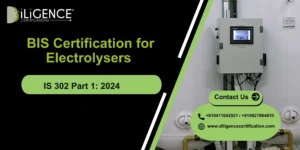
 BIS Certification
BIS Certification
 CDSCO
CDSCO
 CPCB
CPCB
 LMPC
LMPC
 WPC Approval
WPC Approval
 Global Approvals
Global Approvals
 TEC
TEC
 ARAI
ARAI
 BEE
BEE
 ISO Certification
ISO Certification
 Drone Registration
Drone Registration
 NOC For Steel
NOC For Steel



















 Business Registration
Business Registration















 Legal Services
Legal Services
 Trademark Registration
Trademark Registration
 Copyright Registration
Copyright Registration
 Patent Registration
Patent Registration
